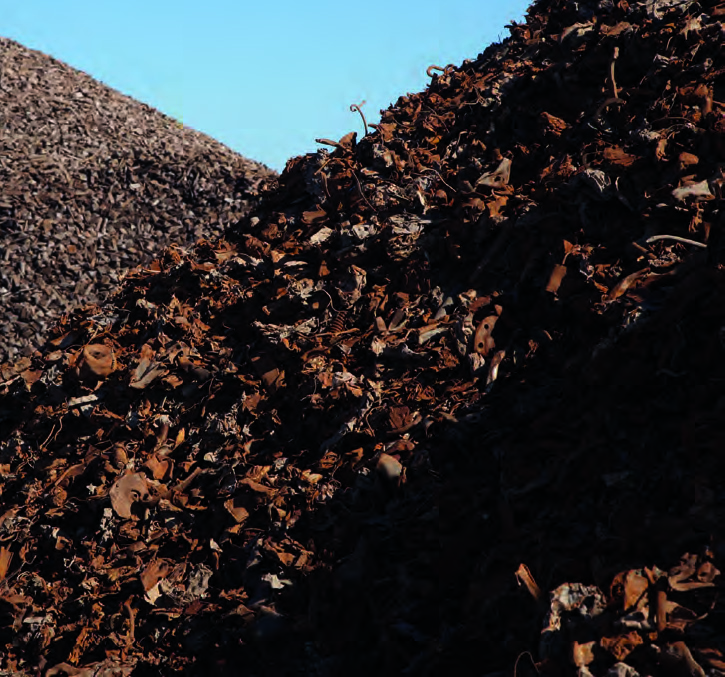Report confirms scrap availability, steel decarbonization prospects
Sources: Steel Manufacturers Association, Washington, D.C.
Global steel interests have an opportunity to make greater use of ferrous scrap in production to lower greenhouse gas emissions and decarbonize the industry, a new Steel Manufacturers Association report finds. Compared to traditional ore-based processes, steel production using recycled scrap equates to an estimated 78 percent less carbon emissions per ton of output.

Report authors calculate probable scrap streams in the countries where wider electric arc furnace adoption could markedly lower the industry’s carbon dioxide emissions. Photo: Nucor Corp.
But some analysts argue that the limited global availability of ferrous (i.e., iron and steel) scrap hinders the ability of this production method to decarbonize steel manufacturing. Their view is based on assessing steel products’ lifespan at approximately 40 years. However, the report provides new calculations in key scrap-producing countries that steel lifespans may be lower, in the range of 25 and 35 years, making more scrap available sooner than with longer lifespans to satisfy the demand for global steel production—projected to exceed 2 billion tons annually by 2050.
“Ferrous Scrap’s Role in Decarbonizing Steel: Assessing Steel Product Lifespans” is co-authored by Dr. Thomas Brady, executive director of the J.P. Morgan Center for Commodities & Energy Management at the University of Colorado, Denver, and Dr. Roderick Eggert, professor of economics and business at the Colorado School of Mines.
“By calculating lower steel product lifespans, the report supports the argument there will be enough scrap to enable a widescale industry transition to electric arc furnaces,” says SMA President Philip Bell. “The difference between a 40-year lifespan and a 25-year lifespan is significant and illustrates the importance of policies to promote scrap recycling. By increasing recycling rates, we can accelerate steel decarbonization efforts.”
Dr. Brady and Dr. Egger estimate average steel product lifespans in nine key steel producing and consumer countries. In Brazil, Canada, Germany, Japan and the United States, the implied product lifetime is approximately 35 years. China and the United Kingdom have the lowest implied lifespans, at approximately 25 years. Mexico and South Korea have lifespans between 25 and 36 years. A weighted average of the product lifespan for these nine countries (based on 2022 raw steel production volumes) is approximately 30 years.
In mature steel markets, robust scrap collection and recycling systems are in place and a significant amount of manufacturing or process scrap is already recycled soon after it is created. In the United States, for example, scrap-based electric arc furnace production accounts for 70 percent of domestic steel production. In developing countries, the infrastructure and economic incentives to collect and process scrap efficiently will grow, which will likely increase the amount of available scrap. Decarbonization will strongly incentivize the transition to scrap-based production, the report concludes.